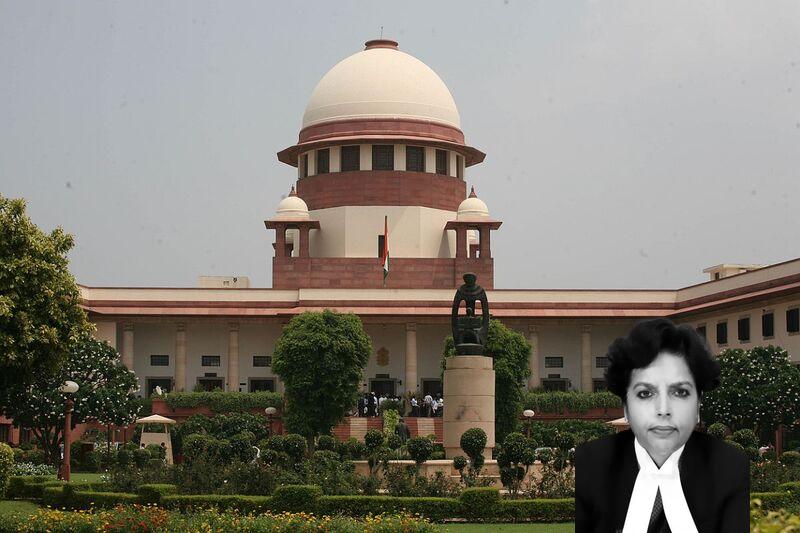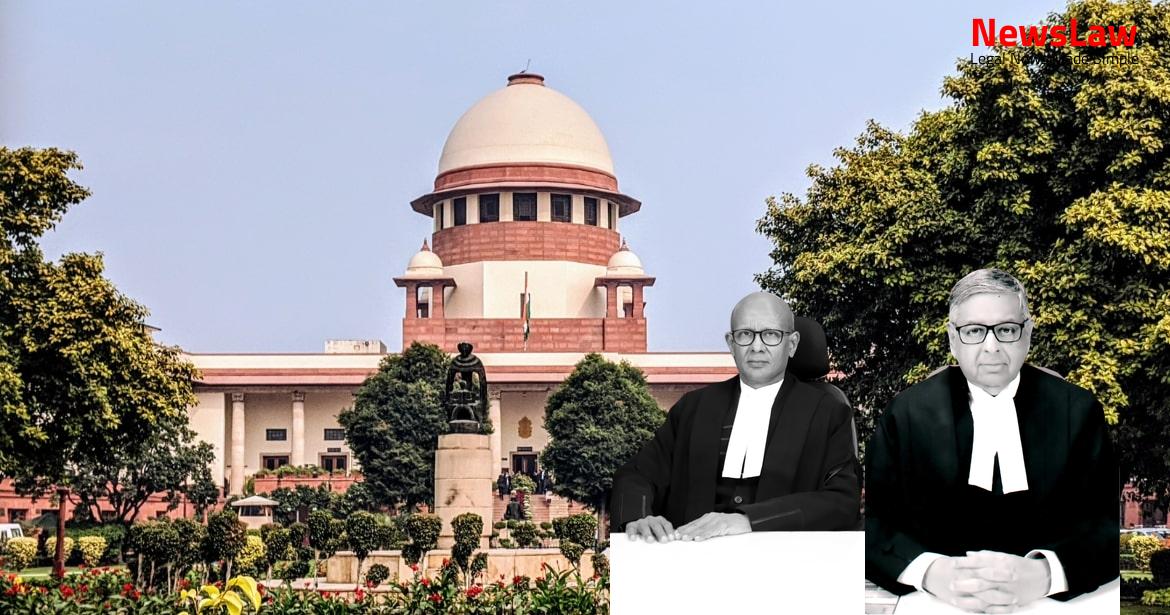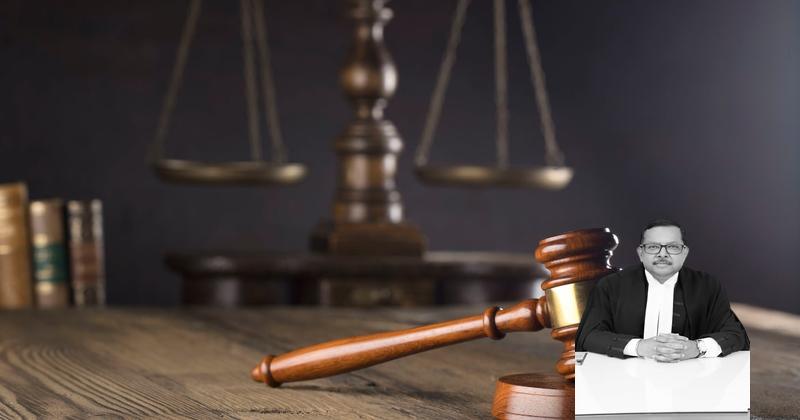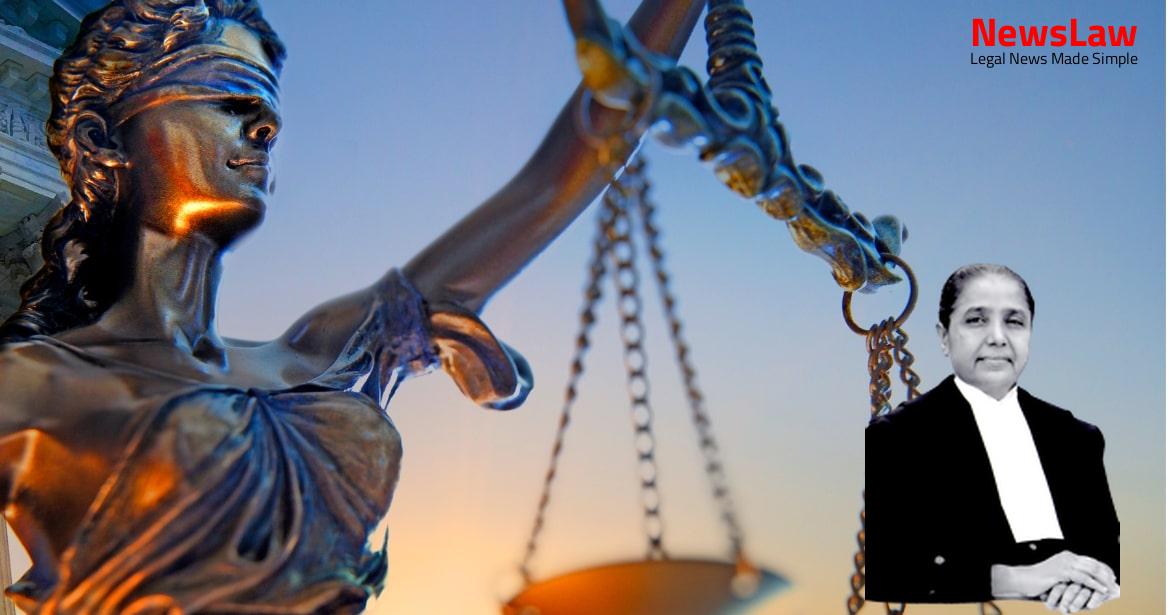REPORTABLE Page 2 of 25 1.1 By the impugned judgment, the death sentence imposed upon Balwinder Singh was set aside under the Reference, thereby declining the Reference and imposed a sentence on him to undergo rigorous imprisonment for 14 years and to pay a fine of 1,50,000/- [Rupees one lakh fifty thousand only] and in default, to undergo rigorous imprisonment for one year for commission of offence under Section 21(c) of the Narcotic Drugs and Psychotropic Substances Act, 1985. On 12 December, 2005, at 01:00 am, a naka was laid by the NCB team at Chandigarh and two independent witnesses [Mukesh Kumar and Sonu ] were associated in the investigation. The prosecution claims that on inquiry, Satnam Singh disclosed that the packets contained heroin that he had brought from Amritsar with the assistance of Balwinder Singh and a person named Harpreet Singh alias Preet alias Sarpanch for sale in Chandigarh. The samples of the packets were signed by Satnam Singh, the two independent witnesses, Intelligence Officer – Balwinder Kumar and O.P. 2.4 On conclusion of the investigation, the NCB submitted a complaint before the Judge, Special Court, Chandigarh stating that Satnam Singh and Balwinder Singh had committed offences punishable under Sections 8, 21, 27A and 60 of the NDPS Act. Sharma, Superintendent, NCB who narrated the sequence of events leading to the laying of the naka, search of the Indica car being driven by the accused Satnam Singh wherefrom the contraband was recovered, preparation of Recovery-cum-Seizure Memo and forwarding of the seized contraband to Delhi for a chemical analysis, ending with the receipt of the report of the Chemical Examiner. It was also contended on behalf of Satnam Singh that one of the two independent witnesses, namely, Mukesh Kumar, was a stock witness of NCB and was on its pay rolls as a daily wager. Subsequently, on 15 March, 2012, after hearing arguments on the quantum of sentence, noting that Balwinder Singh had been previously convicted under Section 21(c) of the NDPS Act for the offence involving commercial quantity of narcotic drugs and applying the provisions of Page 7 of 25 Section 31A of the NDPS Act, he was sentenced to death under Section 21(c) read with Section 31A(1a) of the NDPS Act.
The entire evidence was analysed afresh by the High Court and relying on the decisions of this Court in Kanhaiyalal vs Union of India, Ram Singh vs Central Bureau of Narcotics and Raj Kumar Karwal vs Union of India wherein, it was held that an order of conviction can be passed solely on the basis of the confession made by the accused under Section 67 of the NDPS Act and that such a confession before the officer of the NCB was admissible in evidence since the NCB officer is not considered as a “police officer” within the meaning of Section 25 of the Page 8 of 25 Indian Evidence Act, 1872, both the appellants were convicted under the NDPS Act. For arriving at the said conclusion, the High Court took into consideration the statements of Balwinder Singh and Satnam Singh recorded under Section 67 of the Act and held them to be admissible in evidence for being used as confession against them. Even though Balwinder Singh was not identified by PW-3 and PW-5, his statement was duly recorded under Section 67 of the NDPS Act and the co-accused, Satnam Singh had also stated in his confessional statement that Balwinder Singh was involved in the crime. The High Court went on to reject the defence version sought to be projected by Satnam Singh that Sonu [PW-1] was the real culprit and it was from him that the contraband was recovered but he got away by bribing the NCB team who cleverly planted the contraband in the car driven by Satnam Singh. Mayank Dahiya, learned counsel for the appellant – Balwinder Singh, argued that his client had been convicted solely on the basis of the purported statement of confession made by the co-accused, Satnam Singh before the NCB officials which is no longer admissible in law, in the light of the decision of this Court in the case of Tofan Singh v. It was stated that the High Court was swayed by the fact that at that time, Balwinder Singh was facing three other cases for offences under the NDPS Act but subsequently, he has been acquitted in all the said cases on being extended benefit of doubt. It was contended that the High Court has erred in failing to re-evaluate the credibility of the said witness and satisfy itself as to whether he was in fact an independent witness. Thirdly, it was argued that the other independent witness, Mukesh Kumar was arrayed in the list of witnesses but not examined by the prosecution for the reason that he was a stock witness, as would emerge from the deposition of DW-3 and DW-4. 4.3 Lastly, it was argued on behalf of Satnam Singh that the High Court ought not to have discarded outright the defence version that it was Sonu [PW-1] who was found to be in possession of the contraband and on his bribing the NCB officers, he was let off whereas Satnam Singh, who was innocent, was framed. On the other hand, learned counsel for the respondent-NCB has supported the impugned judgement and stated that there was ample evidence brought on record by the NCB for indicting Balwinder Singh and Satnam Singh. When the present matter was considered by the High Court in the year 2013, it had accepted the arguments advanced by learned counsel for the respondent-NCB that officers of the Department of Revenue Intelligence who are vested with the powers of an officer-in-charge of the police station under Section 53 of the Act, are not “police officers” within the meaning of Section 25 of the Evidence Act and therefore held that a confessional statement of a person accused of an offence under the NDPS Act recorded by such an officer in the course of investigation, is admissible against him.
The other related issue which was examined by the larger Bench in Tofan Singh (supra) was whether the statement recorded by the investigating officer under Section 67 of the NDPS Act can be treated as a confessional statement or not even if the officer is not treated as a “police officer”. Thus, to arrive at the conclusion that a confessional statement made before an officer designated under Section 42 or Section 53 can be the basis to convict a person under the NDPS Act, without any non obstante clause doing away with Section 25 of the Evidence Act, and without any safeguards, would be a direct infringement of the constitutional guarantees contained in Articles 14, 20(3) and 21 of the Constitution of India. Inspector, Customs, (2011) 12 SCC 298 : (2012) 1 SCC (Cri) 555] are correct in law.
In view of the aforesaid decision that declares that any confessional statement made by an accused to an officer invested with the powers under Section 53 of the NDPS Act, is barred for the reason that such officers are “police officers” within the meaning of Section 25 of the Evidence Act, a statement made by an accused and recorded under Section 67 of the NDPS Act cannot be used as a confessional statement in the trial of an offence under the NDPS Act. The version of the prosecution is that after Satnam Singh was arrested, his statement was recorded under Section 67 of the NDPS Act wherein he ascribed a specific role to the co-accused – Balwinder Singh and the Sarpanch. Once the confessional statement of the co-accused, Satnam Singh recorded by the NCB officers under Section 67 of the NDPS Act, who had attributed a role to Balwinder Singh and the subsequently recorded statement of Balwinder Singh himself under Section 67 of the NDPS Act are rejected in the light of the law laid down in Page 17 of 25 Tofan Singh (supra), there is no other independent incriminating evidence that has been brought to the fore by the prosecution for convicting Balwinder Singh under the NDPS Act. Again, as in the case of Balwinder Singh, the statement made by Satnam Singh and recorded under Section 67 of the NDPS Act will have to be discarded outright as it cannot be used as a confessional statement having been recorded by the NCB officials who, in terms of the verdict in Tofan Singh’s case (supra) are to be treated as “police officers” under the provisions of Section 25 of the Evidence Act. In the case of Noor Aga (supra), a two-Judges Bench of this Court was required to decide several questions, including the constitutional validity of the NDPS Act and the standard and extent of burden of proof on the prosecution vis–vis the accused. After the prosecution discharges the said burden, the onus shifts to the accused to prove his innocence. However, the standard of proof required for the accused to prove his innocence, is not pegged as high as expected of the prosecution.
If the prosecution fails to prove the foundational facts so as to attract the rigours of Section 35 of the Act, the actus reus which is possession of contraband by the accused cannot be said to have been established.” The essence of the discussion in the captioned case was that for attracting the provisions of Section 54 of the NDPS Act, it is essential for the prosecution to establish the element of possession of contraband by the accused for the burden to shift to the accused to prove his innocence. The contraband was recovered from the car being driven by the appellant – Satnam Singh in the presence of the independent witnesses and P.K. Mittal ], the prosecution successfully proved the report submitted by him stating inter alia that on testing the samples, the substances drawn from the bags recovered from the car of the appellant – Satnam Singh, were heroin. The argument advanced on behalf of the appellant – Satnam Singh that both the courts below have erred in discarding the defence taken by him to the effect that it was Sonu who was the real culprit and was apprehended by the NCB officers with the contraband, but he was let off on bribing the NCB officers, does not meet the test of Page 22 of 25 preponderance of probability and has rightly been disbelieved by both the courts in the absence of any corroboration through cogent evidence. The deposition of witness produced by him, Soravdeep Singh [DW- 1] to substantiate that a call was made from his mobile number at 09.54 PM on 11 December, 2005 when he had already been detained by the NCB officers, to a landline number installed in the Office of the Zonal Director at Chandigarh, was not of any assistance as the mobile phone bills summoned by the appellant were not proved in accordance with law. State of Haryana to urge that defence witnesses are entitled to equal treatment with those produced by Page 23 of 25 the prosecution and different yardsticks cannot be prescribed for prosecution witnesses as compared to defence witnesses is a well-settled principle of criminal jurisprudence, but cannot take the case of the appellant – Satnam Singh any further inasmuch as the trial Court has carefully analysed the testimonies of the defence witnesses before drawing an adverse presumption against the accused.



